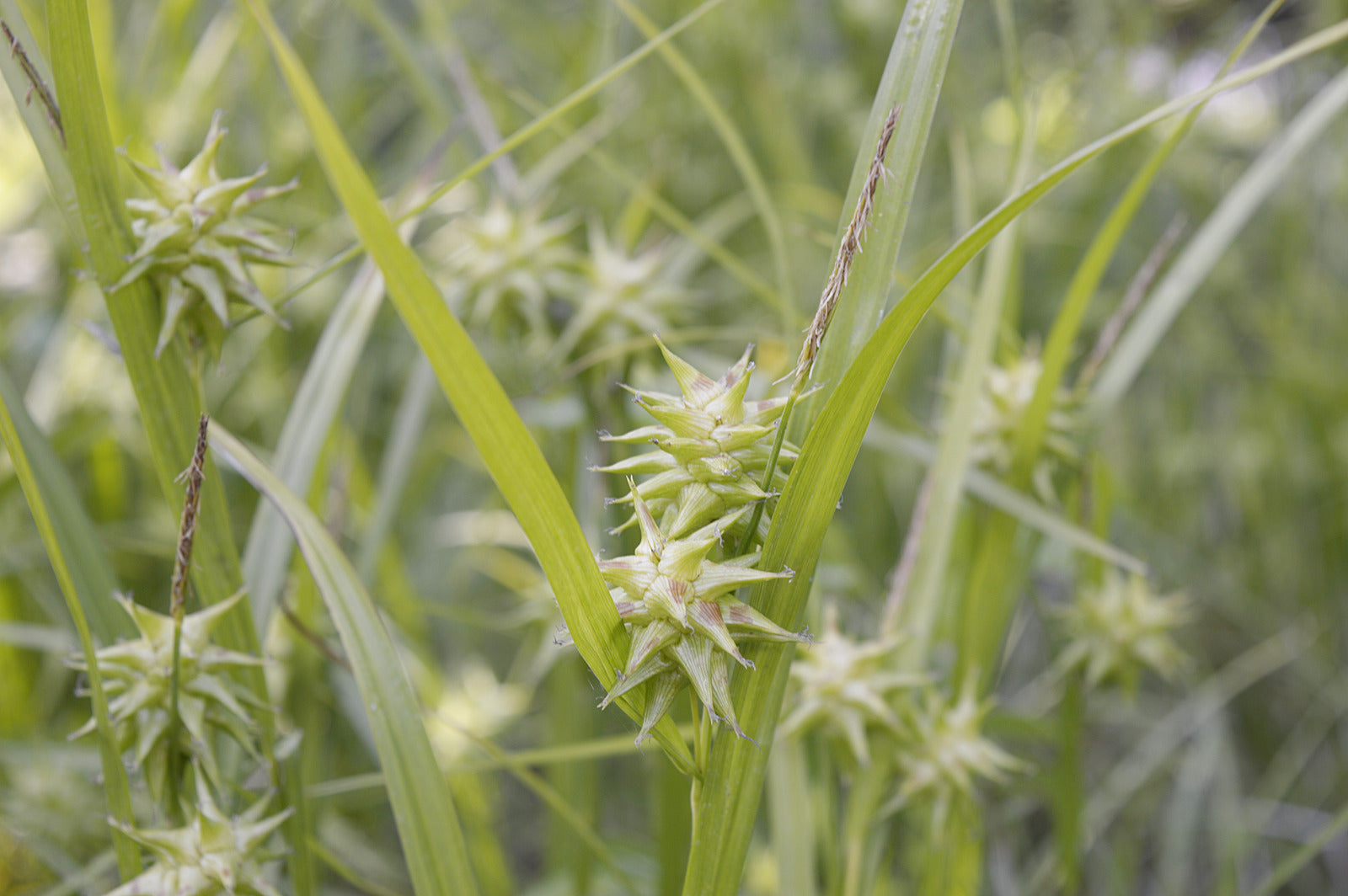CAREX GRAYI / MORNING STAR SEDGE
- Regular price
-
$26.99 CAD - Regular price
-
- Sale price
-
$26.99 CAD
Couldn't load pickup availability
Delivery Fees
Delivery Policy
Enjoy FREE delivery on all orders over $149!
For orders between $80 and $149, a $18.99 delivery fee will apply.
Orders under $80 will be prompted to add more items to your cart.
CAREX GRAYI / GRAY’S SEDGE
A Rare Native Grass-Like Plant with Fine, Arching Foliage
Carex grayi, commonly known as Gray’s Sedge, is a native perennial sedge prized for its finely textured, arching green leaves and clump-forming habit. Thriving in full sun to partial shade with moist, well-drained soils, Gray’s Sedge adds subtle texture, graceful form, and ecological value to wet meadows, naturalized landscapes, and shaded borders. Its soft foliage and upright growth make it a versatile addition to native plant gardens.
Why Choose Gray’s Sedge?
Native & Wildlife Friendly: Provides cover for small wildlife and habitat for pollinators.
Elegant & Textured: Arching, narrow leaves create soft movement and visual interest.
Moisture Tolerant: Prefers consistently moist soils, ideal for meadows and wet areas.
Low Maintenance: Long-lived, resilient, and easy to grow in native plantings.
Key Features:
Foliage Color: Medium to dark green, narrow, arching leaves.
Flower/Seed Color: Subtle brown-green seed heads in late spring to summer.
Height and Spread: Typically grows 1–2 feet tall and 1–2 feet wide.
Hardiness: Hardy to USDA Zones 4–8.
Sunlight: Prefers full sun to partial shade.
Soil Requirements: Moist to wet, well-drained soils; tolerates loam and clay.
Specifications:
Plant Size: 1–2 feet tall, 1–2 feet wide.
Growth Habit: Clump-forming perennial sedge with arching foliage.
Hardiness: USDA Zones 4–8.
Flowering: Late spring to summer with subtle seed heads.
Ideal Uses:
Wet Meadows & Rain Gardens: Perfect for moist, naturalized landscapes.
Woodland & Shade Gardens: Adds texture and softness under trees or in shaded areas.
Borders & Edging: Works as a graceful groundcover in perennial beds.
Pollinator & Wildlife Gardens: Supports insects and small wildlife in native plantings.
Gray’s Sedge is a delicate and ecologically valuable native perennial. Its arching foliage, moisture tolerance, and subtle elegance make it a standout choice for naturalized landscapes, wet meadows, and low-maintenance native gardens.

Care Instructions
Different plants have different watering needs. Check the soil moisture by inserting your finger about an inch into the soil. If it feels dry, water the plant until the water drains from the bottom of the pot. Avoid overwatering, as it can lead to root rot.

CAREX GRAYI / MORNING STAR SEDGE
- Regular price
-
$26.99 CAD - Regular price
-
- Sale price
-
$26.99 CAD


